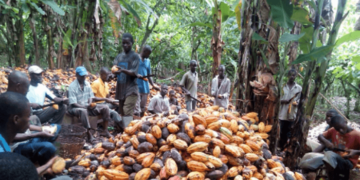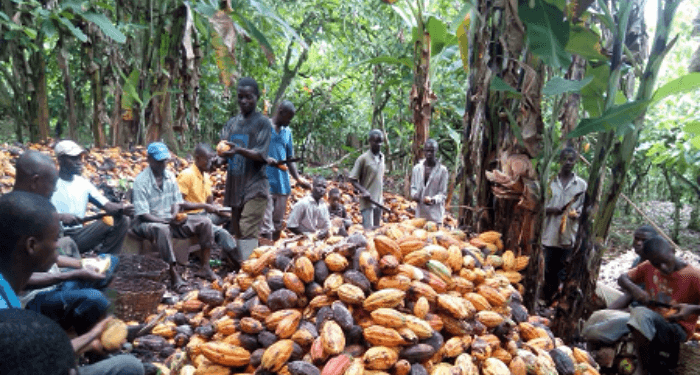Ghana has lost over a third of its cocoa output for the 2023/24 season to rampant smuggling, amounting to 160,000 tonnes, according to a senior official from the Ghana Cocoa Board (Cocobod).
This loss comes amidst a challenging season for cocoa production in both Ghana and Ivory Coast, contributing to a global supply deficit that has driven up cocoa prices.
Smuggling has surged as local farmers, facing delayed payments and lower prices, turn to illicit networks offering better returns in neighboring countries like Ivory Coast and Togo, where the currency is more stable and the sector less regulated.
Cocobod reported that by June 2023, Ghana had produced 429,323 metric tonnes of cocoa, less than 55% of its usual output.
Charles Amenyaglo, Cocobod’s director of special services, noted that the smuggling issue had worsened, with losses tripling compared to previous years.
He revealed that while 250 tonnes of cocoa had been intercepted, the task force was up against increasingly sophisticated trafficking methods.
“The data is alarming,” said Abubakar Omae, general secretary of Ghana’s cocoa and coffee farmers association.
In response, Ghana’s military is set to be deployed to strengthen anti-smuggling efforts.
The smuggling surge is attributed to Ghana’s economic and currency crises in 2022, which made farmers more vulnerable to traffickers offering higher prices.
Cocoa is being smuggled into Togo, Burkina Faso, and even as far as Mali, using creative methods such as hiding it in tipper trucks and fuel tankers. Cocobod’s financial struggles, exacerbated by delays in payments to farmers, have only worsened the situation.
In an effort to address the crisis, Ghana has raised the farmgate price by 45% and introduced new funding models, though concerns remain that a weakening currency could undermine these efforts.

































